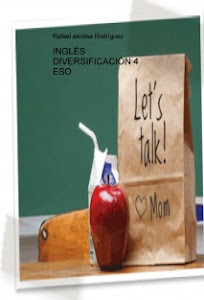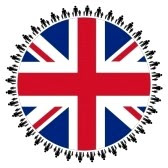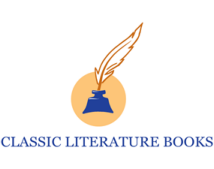29/8/09
Too , So and Very
Too Very So Handout
Alrady vs Yet handout for intermediate students.
Already Yet Handout
26/8/09
25/8/09
Classroom language when using the board / Lenguaje útil del profesor de Inglés en la Pizarra.
Useful classroom language for teachers while using the board /
Vocabulario útil cuando estamos delante de los alumnos en la pizarra en la clase de Inglés.

When you are using the board is a critical time to make sure you use lots of interesting and relevant language, as the students are often passive while the teacher is writing on the board and the teacher has their back to the class and so can't make eye contact with the students to get their attention and check that they are understanding. The fact you are doing something and speaking about it also means that students can understand what you are saying from the context and so should learn the language you are using by watching and listening.
Before you start writing
"Okay, I'll write the answers for exercise B on the board (as we check them)"
"Shout out any adjectives you can think of, and I'll write them on the board"
"I'm only going to write the words I think are difficult, so please ask me if you have any other questions"
Explaining what you are writing
"The red pen is the meaning of the tense, the part written in black is the name of the tense, and the blue part is the typical mistake/ [If you always use the same colour code] What does the red part (always) mean? And the black part? Good!"
"The right hand column is the object, the middle column is the verb, and the column on the left is the subject"
"This symbol means 'not equal' and this symbol means 'opposite'"
"'Adj' stands for adjective"
"This upside down 'e' letter is called 'schwa'. It's the last sound in 'computer'"
"The part of the sentence in brackets is optional"
"The part in capital letters/ italics is the part of the sentence that needs to be corrected"
"The underlined part is the part that usually stays the same"
Eliciting things onto the board
"What's the next word?"
"Can anyone give me an example sentence?"
"What's this sound? Where is it on the phonemic chart poster?"
While you are at the board
"While I'm cleaning the board/ writing this up, can someone/ everyone take out your books/ move the tables back/ pass out these worksheets?"
Checking
"Can everyone read that? What about the people at the back?"
"Is my writing big enough?"
"Don't be shy. I know my handwriting is awful, so tell me if you can't read anything"
"Is that colour okay?"
"Please tell me if the reflection on the board is a problem"
"Do you know what this word means?"
"Can I wipe that off now?"
"Has everyone finished copying it down?"
"Have you finished with this part? Can I erase just this section?"
Adding extra information
"Let me give you an extra example."
"I'll write the phonemic symbols on to help you"
"Let me mark every syllable as well as the main stress. That should help"
Asking students to copy things down
"Can you copy (just) the table into your notebooks?"
"You don't have to copy everything down, just whatever you really think is important"
"The parts I have underlined/ circled will probably be in the exam, so I suggest you write those bits down"
"No translations! Copy the English explanations and examples from the board!"
"There's no need to copy this down, it's all in your books. (We'll have a look at it later)"
"I'll give you time to copy it all down later"
Referring to the board later
"We don't say 'He do', do we? Have a look at the examples on the board."
"You will probably have noticed that the answers to the first two questions are already on the board"
"The example sentences from earlier all refer to the pictures in your book. Match the pictures there with the sentences on the board"
"You can use the information on the board to fill in the table in your books/ to correct the sentences on the worksheet"
Dealing with people who can't see
"Can you see the board better when I turn this light off?"
"Do you think closing the blinds/ curtains might help?"
"Maybe if you sat nearer the front..."
"Is it better if I use a black pen instead of a red one?"
"Okay, I'll try to write bigger."
Drawing their attention to things you have written up when they weren't looking
"The answers to that exercise are written up on the board mixed up to help you."
"I've written the rules of the game up on the board"
"This bit up here is the instructions for the listening task. Please do this, and not the task in your books"
"Here are some useful phrases you can use while you are playing the game"
Dealing with other problems
"Whoops, (I) dropped my pen!"
"Oh dear, (I) didn't mean to erase that part!"
"Sorry, I've mixed up the two meanings of 'will'. This one is a prediction and this one is a spontaneous intention. Can you change that in your books?"
"I'll just check the spelling of that word in my dictionary."
"You're right! I always have problems spelling that word"
"Can someone go to the staffroom and get me some more pens/ chalk?"
"I've lost the board rubber/ pen cap. Did anyone see where I put it?"
"There doesn't seem to be a board eraser. Does anyone have any tissue I can borrow?"
"Some idiot has used permanent marker on the board. Sorry about his, but we'll just have to use the right hand side for today"
If students are using the board
"Don't worry; this kind of pen will wash right off"
"You've got pen on your fingers. Do you want to go to the bathroom and wash it off?"
"You've got chalk dust on the back of your skirt. There's just a little bit left. Can someone help her brush it off?"
"Sorry, can you write a little bit bigger? Some people at the back can't see."
"Can anyone help Janet spell that word?"
"Can you pass the pen to the next person?"
"A little bit higher/ lower/further to the right"
from: usingenglish.com
22/8/09
CAE. ADVANCED ENGLISH /INGLÉS AVANZADO
advanced english C.A.E.
ALL YOU NEED TO PASS YOUR EXAMS: Practice phrasal verbs and idioms with these books

THE FOLLOWING BOOK ABOUT PHRASAL VERBS IS ONLY FOR TEACHERS,AS A TEACHER YOU'LL FIND LOTS OF GAMES, MIMES, CROSSWORDS, ETC ABOUT THE PHRASAL VERBS TO PRACTICE IN CLASS WITH YOUR STUDENTS.
THE LEVEL OF THE STUDENTS WILL BE PRE-INTERMEDIATE ADVANCED.
(EL NIVEL ES PARA BACHILLERATO EN ESPAÑA (16-18 AÑOS)
21/8/09
1001 VOCABULARY AND SPELLING QUESTIONS
DICTIONARY OF SYNONYMS AND ANTONYMS
501 Word Analogies Questions
20/8/09
USE OF ENGLISH TEST
Test Use of English
FROM: OBJECTIVE FIRST CERTIFICATE.
16/8/09
magnet shools --READING--
 Magnet Schools
Magnet SchoolsA magnet school is a school that offers a special curriculum designed to attract students from throughout the school district. Magnet schools generally use different teaching methods or offer special curriculum in areas such as technology or the arts. Students can enroll in regular public schools or these special magnet schools. Many magnet schools are so popular that parents need to put their children's names on a waiting list before enrolling. Some schools have waiting lists for a year or more. Magnet schools are not private schools, they are public schools which are funded by the Department of Education.
In one magnet school in the San Diego area students spend half the day with a Spanish-speaking teacher and half with an English-speaking teacher. Starting in kindergarten, native Spanish-speakers (many are Mexican immigrants) and native English-speakers are in the same classroom. The children play together and quickly become bilingual. Their language skills develop further in higher grade levels where they learn subject areas such as science and history in English one month and in Spanish another month.
1. What does the word "funded" mean in the sentence below?
paid for (pagado)
closed (cerrado)
taught (enseñado)
"Magnet schools are not private schools, they are public schools which are funded by the Department of Education."
2. If you want to enroll your child in a magnet school, but the school is full, what can you do?
Call the Department of Education.
Talk to the teacher.
Put your child's name on a waiting list.
3. Who pays for magnet schools?
The President
The Department of Education
The Teachers
4. If a child doesn't speak any English, can he go to the school described in the second paragraph?
Yes
No
possessive pronouns (grammar + practice)
Subject Pronouns are pronouns which take the place of the subject of a sentence. (like yo, tú, él, ella, nosotros, ellos in Spanish)
Frank is a student.
He is a student.
Possessive Adjectives are adjectives that describe who something belongs to. The thing which it is describing immediately follows the possessive adjective. (like mi, tu, su, nuestro in Spanish)
That is Sue's book.
That is her book.
Possessive Pronouns are pronouns that describe who something belongs to. (like mío, tuyo, suyo, nuestro in Spanish)
The book is Jack's.
The book is his.
Subject Pronoun Possessive Adjective Possesive Pronoun
I ......................................my ..................................mine
you .................................your .................................yours
he ...................................his .....................................his
she .................................her..................................... hers
it ....................................its........................................ its
we .................................our ......................................ours
they .............................their .....................................theirs

ACTIVITY:
PUT THE CORRECT PRONOUN:
1. I -----a teacher.
2. Is this my book or _____(you)?
3. The students need to bring _____books to class.
4. Michelle and I like pizza, but _____(we)don't like hamburgers.
5. My sister and I don't share clothes. She wears her clothes and I wear_____.
6. I call my mom once a week. I tell her about my week and _______tells me about hers.
7. The house is very big. _____has five bedrooms.
8. Valerie can't find ______book.
9. My friend's car is fast but ______(we)car is more economical.
10. I like to play on _____computer.
11. ______(he)a very interesting man.
12. Are ______going to the party on Friday?
13. ______live in Toronto.
14. This book is mine, but that book is _____.
15. Don't forget to bring ______(you)towel to the beach.
16. That house is ____(we).
17. The other house is _____(they).
PREPOSITIONS OF LOCATION, GRAMMAR + ACTIVITY
These prepositions are used to describe where is something.
(Preposiciones de lugar son palabras para describir donde está algo.
Estas son las más comunes y las que debemos estudiar.)
on - encima de
under - debajo de
in - en
inside - adentro
outside - afuera
in front of - en frente de
behind - atrás
next to - al lado between - entre (dos)
among - entre muchos
across from - del otro lado de la calle (también se dice "opposite")
opposite - del otro lado (de la calle u otra cosa)
above - arriba
below - abajo
around - alrededor
on the right - a la derecha
on the left - a la izquierda
ACTIVITY ONE:
LOOK THE MAP BEHIND AND CHOOSE THE CORRECT PREPOSITION:
Estudie las preposiciones del cuadro abajo y seleccione la preposición correcta en las oraciones según la posición en el mapa.
next to - al lado
between - entre
across from - del otro lado de la calle

1. The police station is _________the bank and the store.
2. The drug store is __________the police station.
3. The school is_________ the restaurant.
4. The train station _________the school.
5. The drug store is _______the movie theater and the post office.
ACTIVITY TWO:
Estudie las preposiciones del cuadro abajo y seleccione la preposición correcta según la posición en la foto. STUDY THE PREPOSITIONS BELOW AND PUT THEM IN THE CORRECT PLACE:
in front of - en frente de
behind - atrás
between - entre
above - arriba
below - abajo
on the right - a la derecha
on the left - a la izquierda

1. The house is -------------the car.
2. The dog is ---------------the sun.
3. The tree is ---------------the house.
4. The car is ----------------the house.
5. The sun is ----------------the dog.
6. The house -------------------the dog and the tree.
7. The dog is ------------------the house.
reporting verbs practice
REPORTING VERBS ARE THOSE VERBS USED TO INTRODUCED THE REPORTED SPEECH.

1. The motorist _______ that the police consider giving a warning instead of a fine for using his mobile while driving.
a) asked b) wondered
c) inquired d) told
2. Many US visitors to the UK _______ on having air conditioning on in their hotel rooms, even when the weather is not hot.
a) order b) advise
c) insist d) ask
3. After telling us about the new students' room, she _______ that we were no longer allowed to drink coffee in classrooms.
a) added b) told
c) replied d) reminded
4. One of the students ________ having the lesson in the garden as it was such beautiful weather that day.
a) advised b) insisted
c) asked d) suggested
5. One of my friends is always ________ getting up early every morning.
a) accusing b) insisting
c) complaining d) denying
6. I was ________ not to return to my home along the coast road but to take a different route through the mountains.
a) insisted b) suggested
c) warned d) promised
7. My friend was arrested last week because he couldn't ________ having explosives in his backpack when the police searched him.
a) accuse b) explain
c) admit d) deny
8. Our teacher apologised ________ one of the students' names for the third time.
a) that he forgot b) for forgetting
c) to not remember d) for he forgot
9. I politely _______ their invitation to go to the pub because I needed to spend more time on my homework.
a) accepted b) replied
c) declined d) denied
10. None of the class members _________ to taking the chocolate while the teacher had been out of the room.
a) admitted b) apologised
c) agreed d) accepted
11. I was totally shocked when the police _________ being a terrorist and warned me that I could be held for thirty days without trial.
a) alleged me b) accused me of
c) suggested me d) claimed me of
12. My lawyer ________ remaining silent and suggested that I tell the police everything I knew about my mysterious flatmate.
a) advised against b) told me not
c) warned d) suggested
phrase of the Day
(Something) galore
Function: We use this expression to indicate a huge quantity of something - normally very positive.

Example 1: A: Where do you recommend for leather handbags?
B: They've got handbags galore in 'Accessorize' in the centre.
A: Right. I'll try there.
Example 2: A: How was your birthday?
B: I got presents galore! I was really spoilt by everyone.
prepositions (elementary)

1. I had lots of posters ____ the wall of my bedroom when I was a teenager.
a) to b) on c) in d) at
2. I usually walk _____ work everyday. It keeps me fit.
a) to b) for c) in d) at
3. I think I put the milk _____ the fridge. Can you see it?
a) at b) to c) in d) with
4. If you feel ill, perhaps you should stay _____ home tomorrow.
a) in b) at c) to d) by
5. The train arrived _____ the station twenty minutes late.
a) for b) to c) at d) by
6. The plane had to return _____ the airport because of the storm. It was too dangerous to continue.
a) in b) for c) to d) at
7. Sheila is coming back _____ holiday tomorrow.
a) from b) out of c) in d) to
8. There was an accident last night _____ the end of our street.
a) in b) from c) on d) at
9. When the weather is nice we normally sit _____ the garden.
a) at b) on c) in d) to
10. The rider fell _____ the horse and broke his arm.
a) out of b) down c) for d) off
11. Put the books back _____ the shelf after the class, please.
a) in b) on c) at d) up
12. I lost my money somewhere _____ the hotel and the beach.
a) between b) from c) to d) into
13/8/09
EXAMEN TIPO DE INGLÉS 1º BACHILLERATO / MODEL OF TEST FOR SECONDARY EDUCATION ADVANCED LEVEL
ESTE EXAMEN TIPO ES DE PRIMERO BACHILLERATO, PODÉIS IMPRIMIRLO Y HACERLO, SI TENÉIS DUDAS MANDADME UN E-MAIL O DEJAD UN COMENTARIO EN LA ENTRADA. THANKS!
exam for advanced level of english
11/8/09
QUESTION TAGS PRACTICE / "VERDAD?"

( PRÁCTICA DE PREGUNTAS COLETILLA "VERDAD" ESPECIALMENTE PARA 3 Y 4 ESO)
We use tag questions at the end of statements to ask for confirmation. They mean something like: "Am I right?" or "Do you agree?" They are very common in English.
10/8/09
TRIVIA GAMES IN CLASS OF ENGLISH / TRIVIAL PARA LA CLASE DE INGLÉS

HOW TO PLAY:
THE INSTRUCTIONS ARE VERY SIMPLE.
1. DIVIDE THE CLASS IN GROUPS (4-6 STUDENTS)
2. CHOOSE A REPRESENTATIVE FOR EACH GROUP.
3. THE STUDENTS WILL ADD POINTS IF THE ANSWER CORRECTLY TO THE QUESTIONS.
4. THE FIRST GROUP WHICH GETS 10 POINTS WINS THE GAME.
ACTIVITY FOR EXTENSION:
THE FOLLOWING DAY THE STUDENTS WILL BRING SOME TRIVIA QUESTIONS MADE AT HOME.
ACTIVITIES TO REVIEW THE CONDITIONALS
conditionals.doc
I HOPE YOU FIND THEM USEFUL
5/8/09
WHEN LOVE TAKES OVER
In a few days we'll work with this energetic song, here you are the video to start to work with something...




























